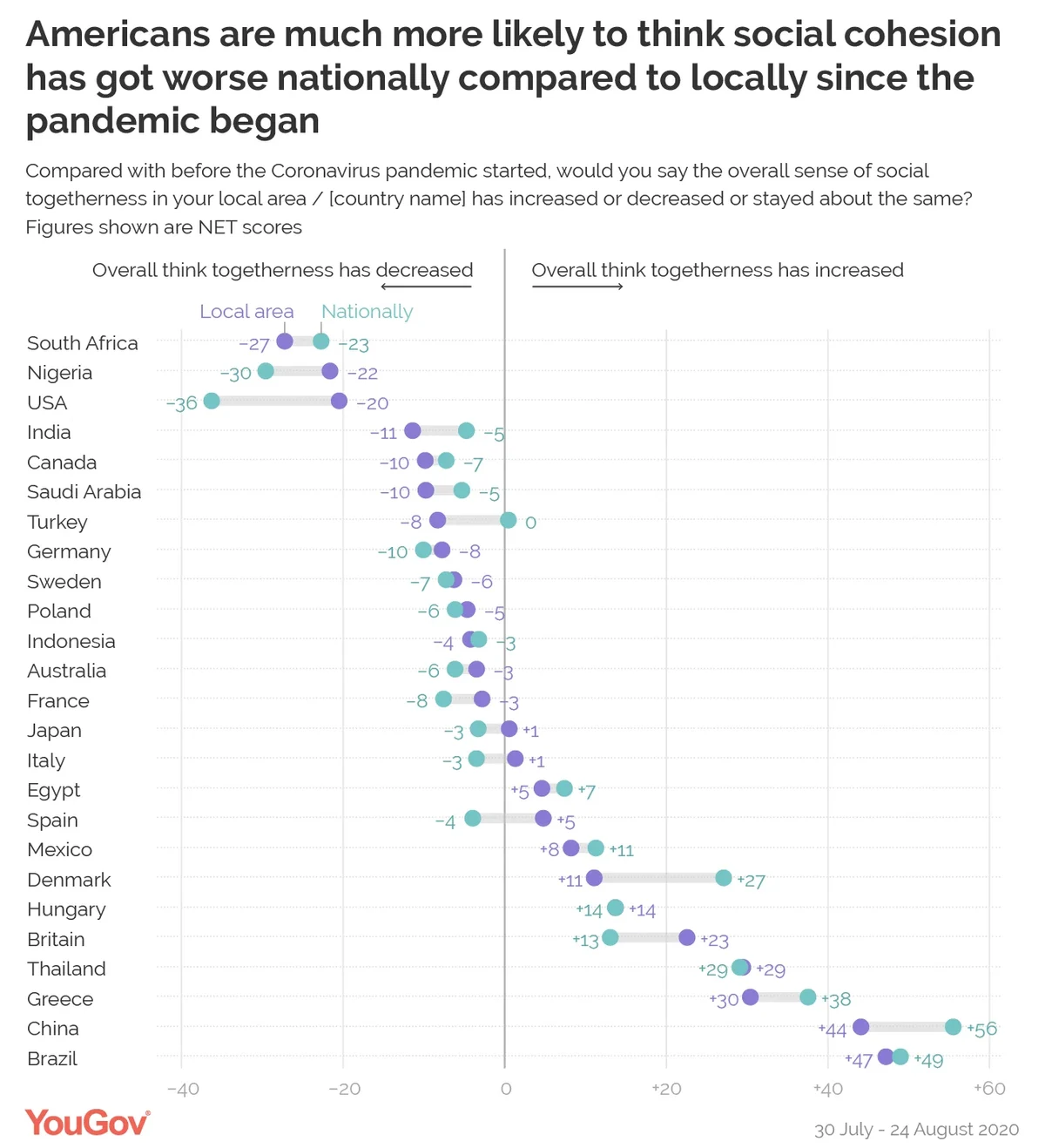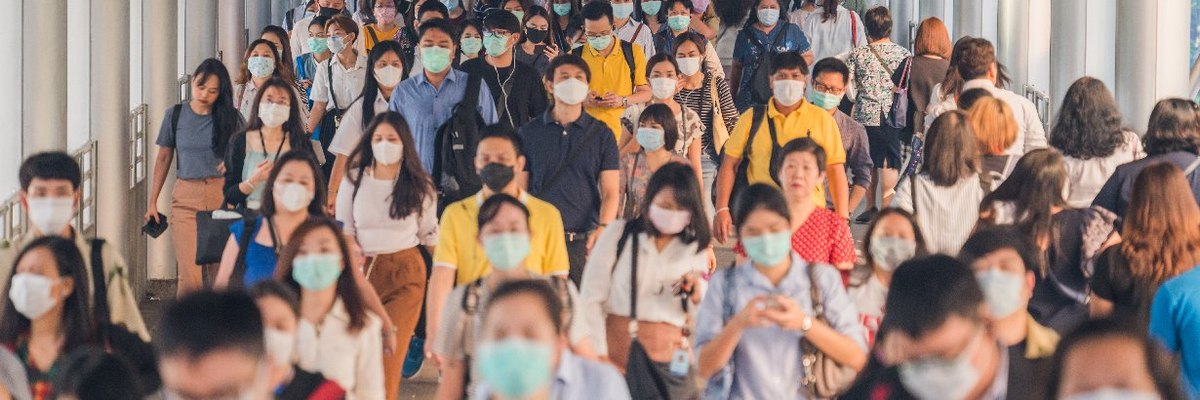Brazilians and Chinese people are most likely to say social togetherness has improved
The COVID-19 pandemic has put people under pressure the world over, and this has had the effect of bringing them together in some places but pushing them apart in others.
Data from the YouGov-Cambridge Globalism Project shows that two thirds of Chinese people (68%) say that the overall sense of social togetherness in their country has increased since the coronavirus pandemic began, the highest rate for any country. Brazilians are not far behind, on 64%. Half of Thai people (51%) and Greeks (50%) also think the country is more tightly knit than it was before the outbreak.
Americans are the least likely to think their country has come closer together since the crisis began, at just 19%. A majority (55%) think that social cohesion has deteriorated.
Americans are now, however, the most likely to think that social togetherness in their country has decreased. That dubious honour goes to Nigeria, at 59%. South Africans (55%) are also as likely as Americans to say people are further apart than they were.
The survey also asked whether people thought social togetherness in their local area had changed since the outbreak as well. Again, Brazilians and Chinese people top the list of nationalities where people say togetherness has improved (60% and 58% respectively).
On this measure, Germany and Japan find themselves at the bottom of the list, at 16%. That is not to say they feel social cohesion has deteriorated locally – they are in fact the countries most likely to say simply that there has been no change (55% for Japan, 52% Germany). It is perhaps no coincidence that both of these countries had a good track record in combatting the virus by the time the survey was conducted this summer.
On the local measure, South Africa and Nigeria are again the countries where people are most likely to say things have become worse, at 54% and 52% respectively.
Americans again are among the most likely to think the situation has deteriorated on a local level as well, at 41%.
However, the difference between perceptions of the local and national situation is most striking in America.
Looking at the net scores for each situation in each country (i.e. subtracting the number of people who think togetherness has decreased from the number who think it has increased) shows that the net score for people’s local areas in the USA is -20, while the net score for the national level is -36. This 16-point difference between the local and national situations is the joint-highest of any country in the study, and potentially reflects the national turmoil Americans have seen this year as a result of Black Lives Matter protests, as well as the contentiousness of the presidential election.
The other country with such a big difference is Denmark, but the relationship is flipped: Danes are more likely to think the national situation (+27) has improved than the local one (+11).











